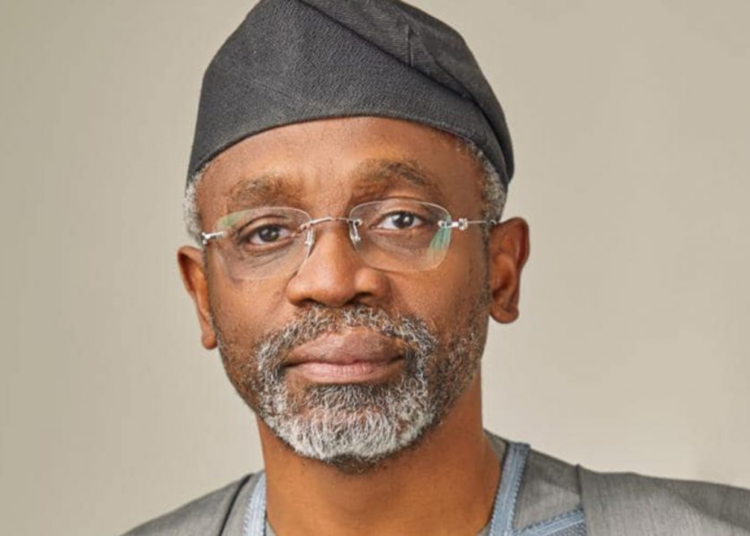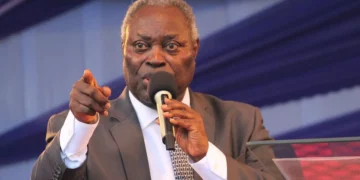The die is cast. The APC eventually announced a preferred speaker and deputy speaker for the 10th House of Representatives. As expected, it generated reactions and resistance from other interested persons.
Let it be clear that aside from the interests behind the preference for Hon Tajudeen Abbas and Hon Benjamin Kalu for speaker and deputy speaker respectively, the duo are competent individuals who would discharge the function of these offices to the admiration of many Nigerians. This, however, does not negate the fact that their loyalty could lie with those who ensured their victory if eventually they are elected.
How can Nigerians forget in a hurry that the current speaker, Femi Gbajabiamila who coincidentally volunteered his political machinery for the Tajudeen/Kalu project is comfortably leading a rubberstamp parliament, under the guise of effective collaboration?
I have mentioned here a few times that Tajudeen could be an effective speaker, but where lies his loyalty?
I also think the endorsement by the party is not a smart decision, micro-zoning two presiding officer positions to the same geopolitical zone does not help the suspicion.
This probably explains the reactions to the endorsement. All the seven other aspirants unanimously spoke against the party’s choice and have gone ahead to form an alliance (G-7) aimed at presenting one candidate from among their ranks.
The opposition against the choice of Tajudeen and Kalu was not based on the conviction that they are not fit for the offices. Rather, the aggrieved lawmakers are out to prevent a cheap sell-out to the executive in the incoming administration.
Some of the aggrieved aspirants felt they stood a better chance of winning, even without an endorsement by the party. A few others felt cheated and betrayed by those who spearheaded the Tajudeen/Kalu project. Lastly, there is also the feeling of distrust, which has heightened fears that the president-elect, Asiwaju Bola Ahmed Tinubu may be easily influenced to do the bidding of those who believe they are closer to him than others.
All the arguments are tenable, depending on who is adducing it and who is listening. Why did the party choose Tajudeen over Idris Wase, despite his experience as deputy speaker and the cry for North Central to be represented in government? Why not Aliyu Betara who, clearly is the choice of majority of the lawmakers across the political parties? Perhaps, these two men are too independent for the “Joint Task”agenda. If not, who is insisting on Tajudeen, and for what purpose?
I was more than surprised to notice that the closest man to Tinubu among those seeking to be speaker, Aminu Sani Jaji is part of the G-7, this suggests that something is wrong somewhere and the president-elect may not support the scheming for Tajudeen as the next speaker.
Jaji was the returning officer for Tinubu in the February 25 presidential election, a duty reserved only for tested and trusted allies. Tinubu refers to Jaji as “my son”, therefore, Jaji’s open opposition to the endorsement of Tajudeen suggests that the president-elect may not have a preferred candidate, or, at least, Jaji was not briefed by his “father”.
While it is unnecessary to interrogate how the endorsement came about, the resistance, its genuineness, and the eventual implication is open for pundits to dissect.
First and foremost, the Gbajabiamila’s camp that is spearheading campaign for the Tajudeen/Kalu team does not have the numbers to produce a speaker. I am pretty sure about this. But they may soon have it, depending on how the G-7 manages its front. It is also not certain that all the seven are against the choice of Tajudeen, a few among them may be there to weaken the plot against the APC’s choice. A few weeks ago, I noted here that some aspirants chose to join the race for relevance in the scheme of things. Once these persons are assured of the necessary recognition, the melody of their music will change. This will be the first test for the resolve of the G-7.
The second and most important test is how to arrive at the choice and a common candidate at the same time convincing their supporters to back the preferred choice. I foresee a situation whereby the ranks of G-7 and their supporters would deplete the moment a common candidate is announced. How badly this will affect plans of the coalition depends on who the common candidate is. I can tell that only one out of the seven has the goodwill to successfully sustain the onslaught as the Tajudeen/Kalu campaign is getting stronger by the day. The factor of an open voting system has also sent jitters to some members who ordinarily would prefer to protect the independence of the parliament.
Therefore, if the interest behind the choice of Tajudeen must be stopped, the G-7 must get its acts together, hopefully so. Should the coalition make the mistake of picking the wrong man, the numbers will immediately increase for Tajudeen and it is the end of the game. Can the G-7 stand these tests?





